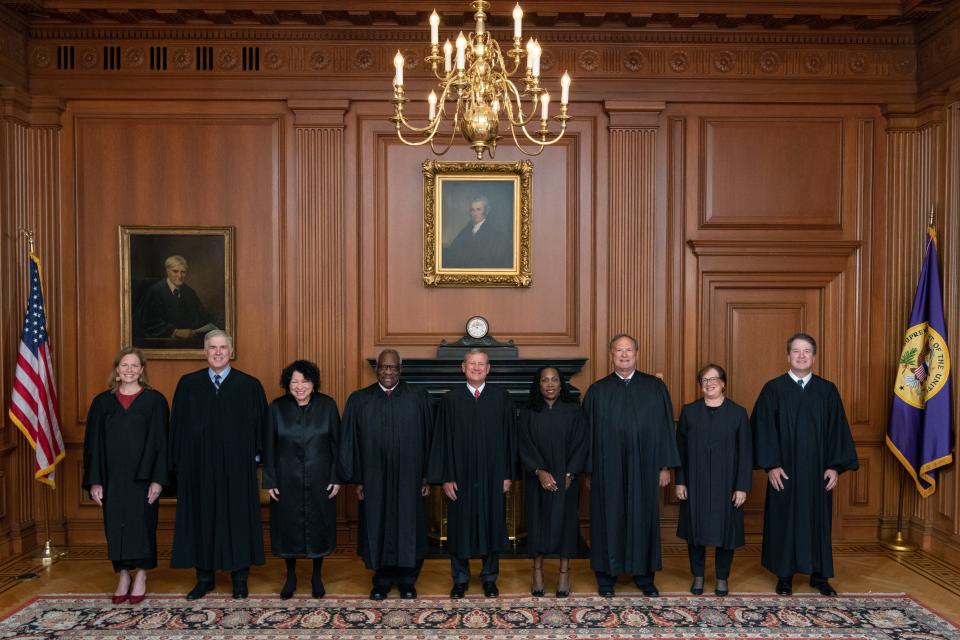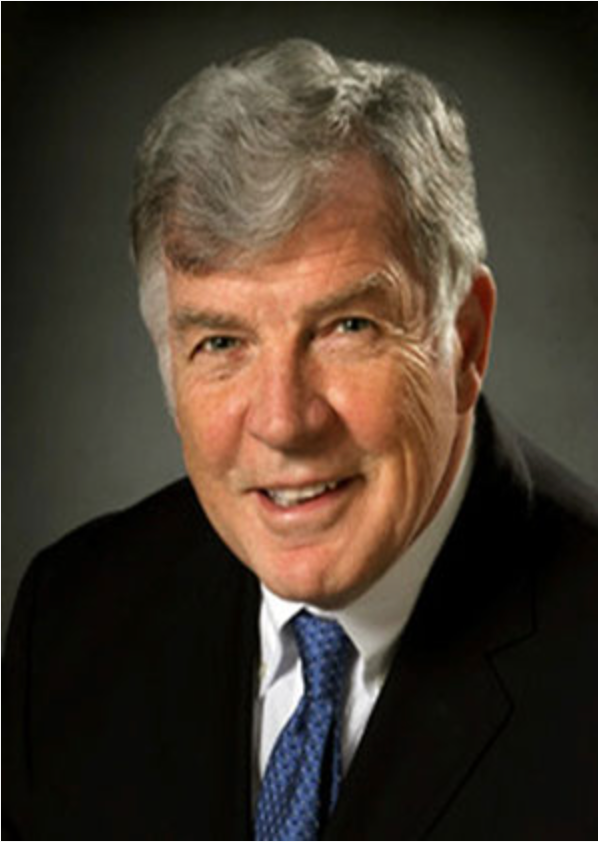The way federal judges are selected justifies packing the Supreme Court | Opinion
Re: “Most Americans oppose plans to ‘pack’ the Supreme Court,” by Paul G. Summers, Feb. 12.
With all due respect and appreciation for most of the statements about the judicial branch of our federal government expressed by former judge and State Attorney General Summers in the Civility Tennessee series, I believe it is necessary to point out that he has overlooked the recent history of the Supreme Court, and as a result has erred in endorsing an amendment to the Constitution that would prohibit any addition to the number of justices on the court.
Mr. Summers says “(t)he third federal branch, the judiciary, is not political,” but this ignores the fact that our federal judges are selected and appointed through a political process, and that in recent years there has been an obvious, blatant, and successful Republican use of that process to accomplish a particular political result at the Court.
Our Supreme Court and other federal judges are nominated by elected partisan presidents. They cannot take office unless and until they are confirmed through another political process, i.e., the advice and consent of the U.S. Senate, controlled by the Senate majority leader, an elected political leader of the party which happens to have a majority in the Senate when a judge is nominated.
Hear more Tennessee Voices: Get the weekly opinion newsletter for insightful and thought provoking columns.
How Republicans effectively packed the high court
For many years the Republican party has used its political power to select and confirm members of the Court to bring about a reversal of the 1973 abortion decision in Roe v. Wade. Using a lobbying organization known as the Federalist Society, Republican presidents have gone to great lengths to research the life history and judicial records of possible nominees to the court, and select only those who are most likely to vote to reverse the Roe decision.

To aid in this partisan effort to overturn a court decision, Republican Senate Majority Leader McConnell refused to allow the Senate to consider or vote on a nominee by Democratic President Obama, supposedly because the court vacancy occurred shortly before the end of Obama's term.
However, when another vacancy occurred closer to the end of President Trump's term, McConnell submitted Trump's nominee to the vacancy to a vote in the Senate without delay.
The result of these unfair, unprecedented, inconsistent and unprincipled political tactics was that Republican President Trump was enabled to appoint three members of the Supreme Court in his single four-year term as President, while Democratic President Obama only managed to appoint two justices to the court in his two elected terms as president, totaling eight years.
Sign up for Latino Tennessee Voices newsletter:Read compelling stories for and with the Latino community in Tennessee.
Reversal of Roe v. Wade undid 49 years of precedents
These political tactics also resulted in producing the Supreme Court decision they were intended to produce by the "nonpolitical" Supreme Court. Less than two years after President Trump made the last of his three judicial appointments the court rendered its Dobbs abortion decision, reversing Roe, a 7-2 Supreme Court decision, subsequently affirmed, that had stood for 49 years.
All three of Trump's appointees voted in Dobbs to reverse Roe, a result you would expect under the circumstances, unless you accepted Summers' unqualified statement in his Tennessean article that the federal judiciary is “nonpolitical.”
Mr. Summers condemns adding justices to the court on the grounds that it would be “court packing,” which “would be a disaster for the nation and any party that embraced it.”
However, I submit that the present court has already been “packed” by the Republicans by a somewhat different method, and adding additional justices may be the only practical way to “unpack” it.
Sign up for Black Tennessee Voices newsletter:Read compelling columns by Black writers from across Tennessee.
Democrats should pursue adding more justices
Adding justices has been done in the past. The Constitution does not prescribe a certain number of justices, and it apparently was not a "disaster for the nation" when it was done before.

There is a risk that if a Democratic President and Congress did this the Republicans would attempt to retaliate. But it would be worse for Democrats to do nothing in response to successful Republican efforts to pack the court.
The Dobbs decision is unpopular with the public, as shown by polls and 2022 state election results in which there was an abortion issue on the ballot. It is making the court unpopular and more widely seen as political.
The present Supreme Court's constitutional views expressed in the Dobbs majority are outside of the mainstream of the American legal profession, and a balance on the Court needs to be restored.
Denty Cheatham of Nashville is a lawyer with 56 years of experience and a partner with his wife in the law firm Cheatham & Palermo.
This article originally appeared on Nashville Tennessean: The way federal judges are chosen justifies packing the Supreme Court

